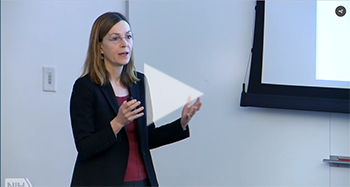UPDATE: The MOSAIC Institutionally-Focused Research Education Cooperative Agreement to Promote Diversity (UE5) and Postdoctoral Career Transition Award to Promote Diversity (K99/R00) funding opportunity announcements are now available.
At the recent NIGMS Advisory Council meeting, the Division of Training, Workforce Development, and Diversity received approval to write two new funding opportunity announcements as part of our efforts to enhance postdoctoral career transitions to promote faculty diversity in the biomedical research workforce.
The Maximizing Opportunities for Scientific and Academic Independent Careers (MOSAIC) program is designed to facilitate the transition of talented postdoctoral researchers from diverse backgrounds into independent faculty careers in research-intensive institutions. The program has two components: an institutionally-focused research education cooperative agreement (UE5) and postdoctoral career transition award (K99/R00) to enhance diversity. Continue reading “Early Notice: Concept Clearance for the Maximizing Opportunities for Scientific and Academic Independent Careers (MOSAIC) Program (UE5 and K99/R00) to Promote Diversity in the Biomedical Research Workforce”



 The path to a successful career as a biomedical scientist is rarely direct: There can be stops along the way, and each person has different motivations, opportunities, and challenges. The path also depends, in part, on the institution, program, or department where the student is training, and finding the right scientist, mentor, or coach to help guide that journey isn’t the same for everyone. A new online training program supported through an Innovative Programs to Enhance Research Training (IPERT) grant to iBiology can help participants navigate this process.
The path to a successful career as a biomedical scientist is rarely direct: There can be stops along the way, and each person has different motivations, opportunities, and challenges. The path also depends, in part, on the institution, program, or department where the student is training, and finding the right scientist, mentor, or coach to help guide that journey isn’t the same for everyone. A new online training program supported through an Innovative Programs to Enhance Research Training (IPERT) grant to iBiology can help participants navigate this process.